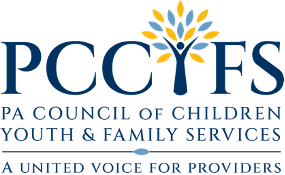Johnny, who is 12 years old, has outpatient individual therapy and sees a psychiatrist to help him manage his moods, as he has problem behaviors when he is anxious. He was recently referred to Intensive Behavioral Health Services (IBHS) by his outpatient therapist, who believes Johnny may benefit better from someone seeing him in his home environment. But after the referral, the family was told there would be a wait for services as IBHS did not have the staff for the prescribed services. So the family contacted a few providers until they found one with a Behavior Specialist Consultant (BSC) to help Johnny in the interim. But Mobile Therapy (MT) and a Behavioral Health Technician (BHT) were not available due to staffing shortages, hour limitations, and Johnny’s location in a rural area.
While the BSC began to see Johnny monthly in the interim, Johnny had an incident where his anxiety led to physical aggression. With other options still unavailable, the family reached out to Johnny’s psychiatrist, who offered an appointment for six weeks later. Needing immediate help, Johnny went to a hospital emergency department for an assessment. After hours of waiting there, Johnny was finally discharged back home with different medication, a follow-up appointment with his psychiatrist in six weeks, and IBHS staff ready to begin in two weeks. The shortage in service and staff availability resulted in a traumatic experience that could have been avoided had the behavioral health system had the resources to support Johnny’s initial needs.
Emergency Departments (EDs) nationwide have become the only option for families who have been waiting months to obtain community-based services, which may lead to youth and families experiencing unnecessary trauma and emergency resources being diverted from medical emergencies. EDs can evaluate and try to find necessary services for youth, which may lead to youth spending hours or days in the ED waiting for needed services as providers do not have the immediate capacity to support discharge. While Johnny and his family were fortunate to access follow-up appointments, that is not the experience of all families.
And while mental health providers want to help, their hands are tied. Specifically, struggles with staff retention have meant psychiatric residential treatment providers have had to reduce bed capacity and community-based providers are not able to serve the amount of youth they may have had prior to the pandemic. The needs of children and young people for which a residential treatment level of care is medically necessary require significant support.
Working in the human services field is challenging. Keeping youth safe and providing treatment to help them manage their symptoms is difficult work. Coupled with low pay and high workload, leading to high turnover rates, it’s no surprise that some programs for children have opted to close due to inadequate funding and/or lack of staff. Decades of experience in children’s behavioral health are lost to other fields as workers would rather find remote positions, or less stressful work with higher pay.
On the other hand, working in the behavioral health field can be rewarding in many ways:
- helping youth and families gain access to resources they may not have known about, to enhance their quality of life;
- learning about different diagnoses, community resources, cultural differences, and ways your knowledge can be beneficial;
- obtaining experience to guide you to the many opportunities the behavioral health field has to offer;
- and becoming a voice and advocate for youth, families, and providers with the ultimate goal of improving the system and overcoming barriers and challenges.
What does the data show?
While worker recruitment and retention has always been an issue, the COVID-19 pandemic aggravated the problem. In the fall of 2021 the Pennsylvania Council of Children, Youth & Family Services (PCCYFS), the statewide association for child welfare, education, juvenile justice, and children’s behavioral health providers, conducted a survey1 of PCCYFS children’s behavioral health provider members, which included congregate and community-based small and large providers. Out of 51 providers that participated:
- over 25% had more than 30 full time equivalent vacant positions, and more than 75% had multiple positions vacant;
- 18 providers had a waiting list;
- 80% of respondents said they were unable to keep up with the hiring need for all positions, resulting in waiting lists and ultimately not being able to serve youth they receive referrals for, and possibly having to close or downsize programming.
These shortages result in a financial loss for the provider and fewer services available to youth.
More recently, PCCYFS conducted a more formal salary study2, which reported a total of 1,261 open positions across 39 agencies, all of which had at least one open position: 81% of those positions were behavioral health direct care staff.
What is being done to help this crisis?
PCCYFS and partners across the system have been sounding the alarm on the crisis and the impact it will have on Pennsylvania’s children and youth. There are many contributing factors to this crisis and everyone can play a part in supporting these solutions.
On the ground level, providers at every level of care have taken resourceful measures to improve their marketability, including increased salaries/hourly rates, various types of bonuses (longevity, sign-on, referral), requests for rate increases from funders/insurance companies to be able to match expenditures of the provider, or re-evaluation of their benefits offering. Many providers work closely with local education institutions and conduct exit interviews to better gauge their gaps and areas for improvement.
On a systemwide level, PCCYFS recently convened a statewide multidisciplinary workgroup to focus on policy solutions to the workforce crises plaguing providers in child welfare, juvenile justice, and children’s behavioral health. The workgroup consists of providers, counties, state agency leadership, education institutions, consultants, and other critical partners.
PCCYFS has also proposed several policy-based recommendations.
- Children’s behavioral health providers should be reimbursed at their true cost of care that is inclusive of a competitive wage rate for their workers, and the state should review potential alternative payment structures to support provider agencies. Many Behavioral Health Managed Care Organizations (BHMCOs) have developed Value Based Payment agreements, Pay for Performance measures and/or Alternative Payment Arrangements in an effort to assist providers with the ongoing crisis. Although these efforts are helpful in some ways, they are not enough.
- Governing agencies should consider offering some flexibilities and waivers in staffing requirements (that will NOT compromise safety) to help providers adjust without risk of closing programming due to limited staffing.
One particular need with which providers are challenged is a shortage of child psychiatrists in Pennsylvania; PCCYFS supports the need for physician extenders to help expand this workforce of professionals who can prescribe medications so that wait times for services can also decrease. Although primary care physicians can prescribe psychiatric medication, it is best practice for a psychiatrist to do so in consultation with the primary care physician based on the area of expertise. If other medical professionals had the expertise/schooling/training needed to prescribe psychiatric medication in consultation with other treating professionals instead of a collaborative agreement with a physician, this would open up a pool of experienced and willing professionals to help fill the gaps in the mental health system and alleviate wait times. The Pennsylvania legislature has introduced two pieces of legislation to address this need:
-
-
- Prescription Privileges for Psychologists: House Bill 10003
- Modernization of the Professional Nursing Law: Senate Bill 254
-
- The legislature can also advance specific benefits to support human services professionals, many of which have already been introduced in this legislative session, including:
- Mental Health Professional Student Loan Forgiveness: House Bill 7255
- Mental Health Workforce Retention Program: House Bill 7266
- Social Worker Educational Enrollment and Training Program, otherwise known as SWEET: House Bill 13497
- Behavioral Welfare Educational Loan Lenience Program, otherwise known as BWELL: House Bill 13508
- The Pennsylvania Department of Human Services and other government partners should pursue formalized partnerships with higher education institutions to promote connections between the behavioral health system’s employers and a pipeline of professionals.
- The Governor’s Office can consider the establishment of an Office of Health and Human Services Workforce, Innovation and Reform as well as a Governor’s Health and Human Services Workforce Reform Advisory Council9 which would continue the conversation surrounding workforce issues with state agencies, providers and other members to develop and implement a strategic plan at a cohesive statewide level.
With enough physician extenders in Pennsylvania to support the bottlenecks and waitlists that exist across the system, providers would have the opportunity to offer quality treatment. If providers had the funds to pay a competitive salary, with direct linkages to higher education institutions, maybe Johnny would have had the services he needed to avoid a traumatic ED experience.
There are many initiatives and much advocacy being done to help eliminate the crisis our children, families, and providers have been experiencing in Pennsylvania and nationwide. Everyone, whether a provider, a family, a legislator, or another government official, can play a role in alleviating these capacity challenges on behalf of Johnny and other young people like him everywhere.
—————–
 Jaclyn Kreshock has dedicated her entire career to children’s behavioral health needs, working as a Mental Health Technician, Case Manager, and Child and Adolescent Service System Program (CASSP) Coordinator over the past 24 years. She is presently with the Pennsylvania Council of Children, Youth, & Family Services (PCCYFS) as the Director of Children’s Behavioral Health Services. Jackie has served on the Board of the Children’s Advocacy Center of Monroe County and the Suicide Prevention Coalition of Monroe County. She currently sits on the Pennsylvania Mental Health Planning Council and is on the Board of Women’s Resources of Monroe County.
Jaclyn Kreshock has dedicated her entire career to children’s behavioral health needs, working as a Mental Health Technician, Case Manager, and Child and Adolescent Service System Program (CASSP) Coordinator over the past 24 years. She is presently with the Pennsylvania Council of Children, Youth, & Family Services (PCCYFS) as the Director of Children’s Behavioral Health Services. Jackie has served on the Board of the Children’s Advocacy Center of Monroe County and the Suicide Prevention Coalition of Monroe County. She currently sits on the Pennsylvania Mental Health Planning Council and is on the Board of Women’s Resources of Monroe County.
Jackie is originally from Northeast Pennsylvania and currently resides with her family in Monroe County. She has a passion for helping people and loves the community in which she lives.
About PCCYFS
 The Pennsylvania Council of Children, Youth and Family Services (PCCYFS) is the collective voice for private agencies that serve Pennsylvania’s most vulnerable children and their families. PCCYFS represents nearly 100 private agencies employing more than 12,000 professionals statewide. Services include foster care/kinship care, adoption, residential treatment, behavioral health services, education, counseling, independent living/transitional living services and others.
The Pennsylvania Council of Children, Youth and Family Services (PCCYFS) is the collective voice for private agencies that serve Pennsylvania’s most vulnerable children and their families. PCCYFS represents nearly 100 private agencies employing more than 12,000 professionals statewide. Services include foster care/kinship care, adoption, residential treatment, behavioral health services, education, counseling, independent living/transitional living services and others.
References:
PCCYFS (2021). The Workforce Crisis Affecting Behavioral Health & Child Welfare Services: Analysis and recommendations: https://pccyfs.org/pccyfs-report-workforce-shortage-crisis-for-childrens-services-providers/
2 PCCYFS (2023). PCCYFS Salary Survey:2023: https://pccyfs.org/product/pccyfs-salary-survey-2023/
3 Pennsylvania General Assembly, Regular Session 2023-2024. House Bill 1000: https://www.legis.state.pa.us/cfdocs/billInfo/billInfo.cfm?sYear=2023&sInd=0&body=H&type=B&bn=1000
4 Pennsylvania General Assembly, Regular Session 2023-2024. Senate Bill 25: https://www.legis.state.pa.us/cfdocs/billInfo/billInfo.cfm?sYear=2023&sInd=0&body=S&type=B&bn=0025
5 Pennsylvania General Assembly, Regular Session 2023-2024. House Bill 725: https://www.legis.state.pa.us/cfdocs/billinfo/billinfo.cfm?syear=2023&sind=0&body=H&type=B&bn=725
6 Pennsylvania General Assembly, Regular Session 2023-2024. House Bill 726: https://www.legis.state.pa.us/cfdocs/billinfo/billinfo.cfm?syear=2023&sind=0&body=H&type=B&bn=726
7 Pennsylvania General Assembly, Regular Session 2023-2024. House Bill 1349: https://www.legis.state.pa.us/cfdocs/billInfo/billInfo.cfm?sYear=2023&sInd=0&body=H&type=B&bn=1349
8 Pennsylvania General Assembly, Regular Session 2023-2024. House Bill 1350: https://www.legis.state.pa.us/cfdocs/billinfo/billinfo.cfm?syear=2023&sind=0&body=H&type=B&bn=1350
9 PCCYFS (2023). Letter to the Governor – Establishment of an Office of Health and Human Services Workforce, Innovation and Reform and a Governor’s Health and Human Services Workforce Reform Advisory Council: https://pccyfs.org/pccyfs-calls-for-greater-support-for-health-and-human-services-workforce/






